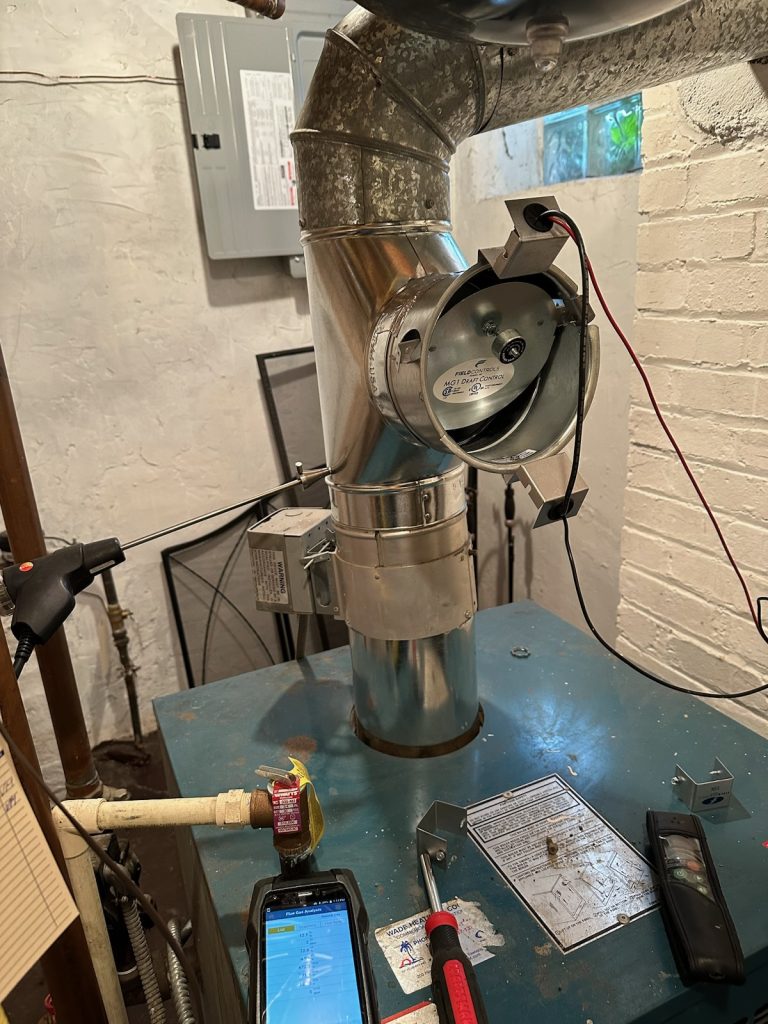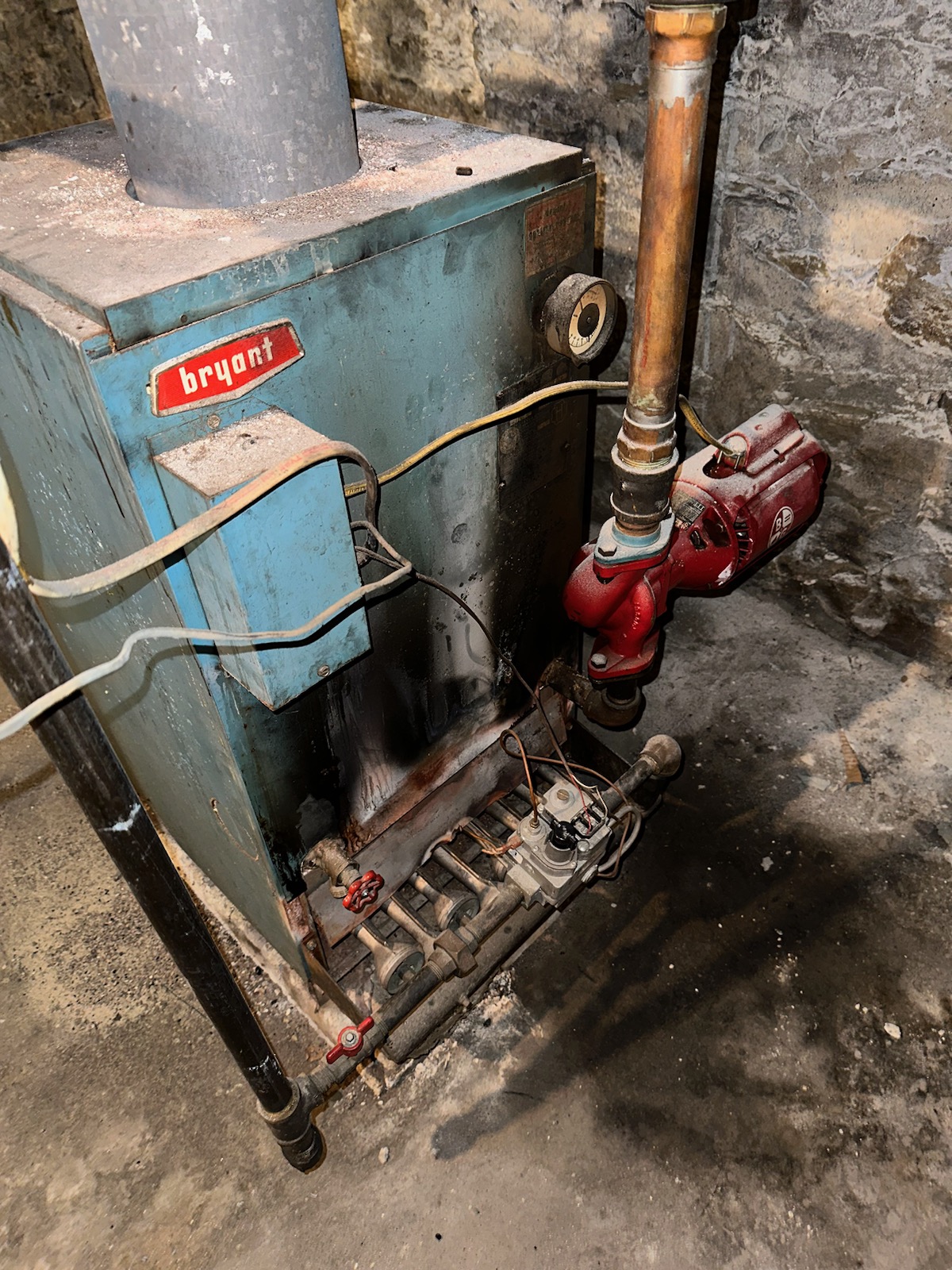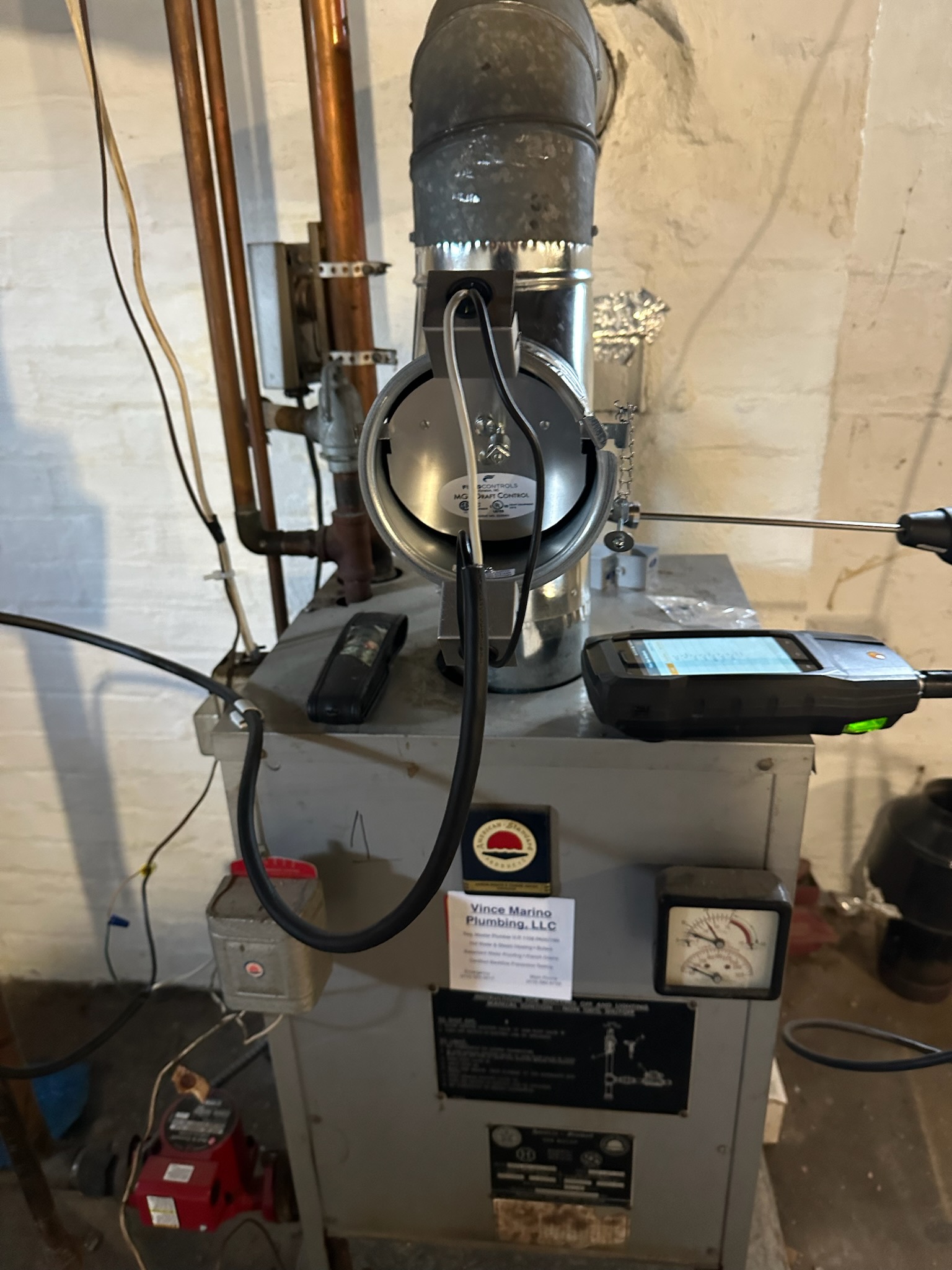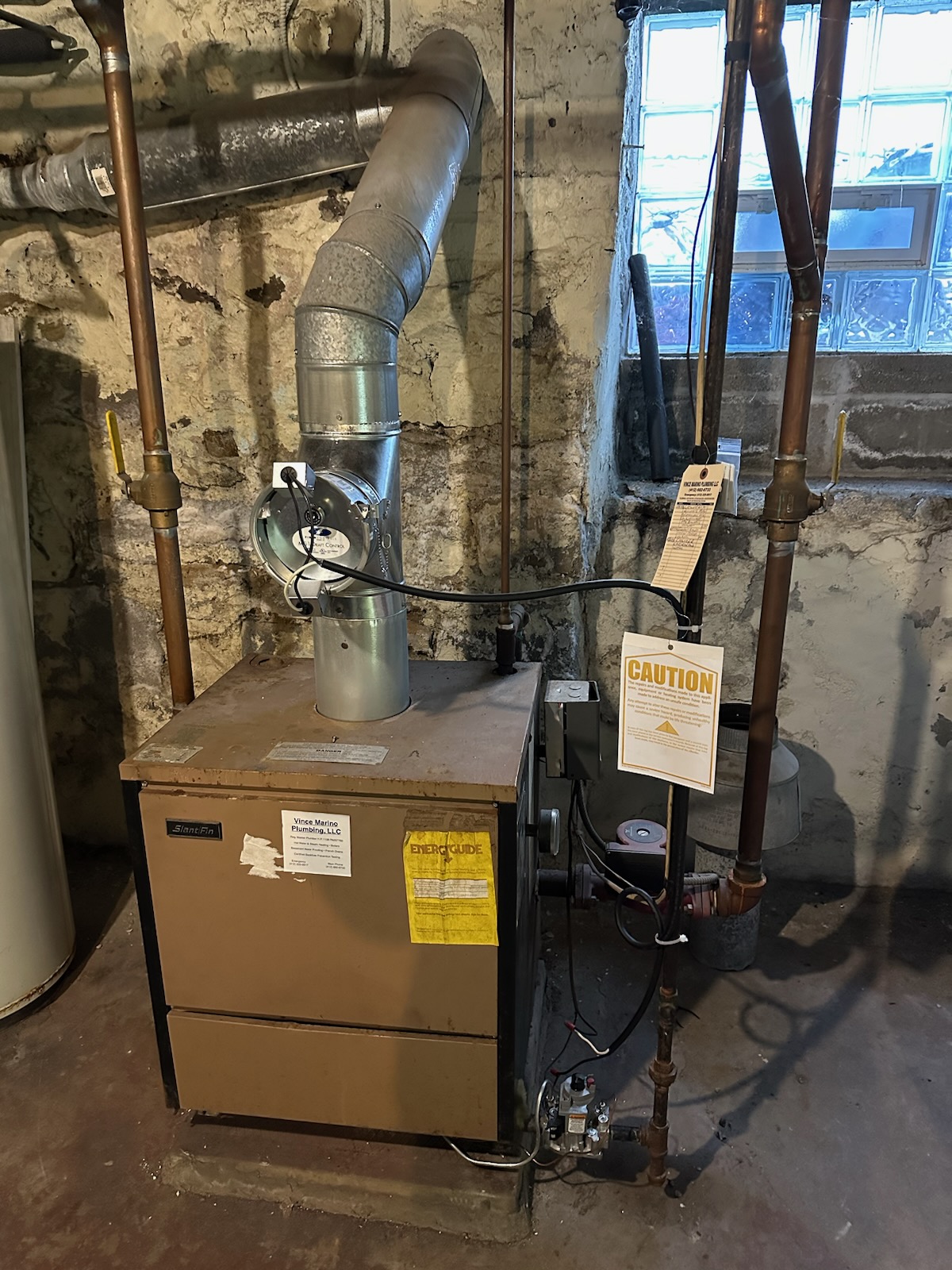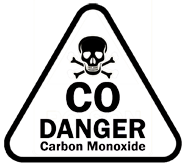Despite the current inflation we’ve been experiencing for a couple of years, have you noticed an increase in gas cost to run your boiler? Regardless of whether you use your boiler during the winter months, you could be paying double if you have an indirect water heater using your boiler all year long. An invisible phenomenon can cause your money to float up your chimney. Look at what may be causing your boiler to spike your gas bill and a simple fix that won’t make you broke.
Atmospheric vented boilers
Hot water and steam boilers atmospherically vented into a chimney are type 1 appliances. This type of boiler is still popular and is being replaced with more efficient running boilers in homes today. A typical efficiency rating on a new hot water boiler is around 84 percent, and a steam replacement is 82 percent. There is nothing wrong with these types of boilers.
How the boiler works
The thermostat calls for heat, and the boiler gas valve lights the pilot, igniting the main burner, and the process begins. The boiler’s flue pipe is connected to the chimney and vents the hot combustion gas outside. The drafting process involves indoor and exterior temperatures and pressures. The draft of the boiler removes the combustion gas from the boiler and regulates combustion air to the boiler’s burners. The temperature difference between the flue gas and outdoor temperature starts the draft. The chimney or flue is just a conduit connecting the inside of your home to the outside. It doesn’t start a draft.
Excessive stack effect or chimney effect
At times, I encounter an excessive stack effect on boiler drafts, the invisible phenomenon that can’t be seen. I’ve seen this often while cleaning and checking boilers with chimneys taller than thirty feet. The previous HVAC tech that serviced or installed the boiler never bothered or knew to perform a combustion analysis with a draft test. The boiler operated with a high draft and ran unsafely and inefficiently until I discovered the customer’s problem. In this type of situation, the flue gas is pulled up the chimney too quickly from a boiler, and a few serious problems will occur:
- loss of heat transfer
- waste of gas
- burner failure
- flame impingement
- metal embrittlement
- excessive carbon monoxide
- complete boiler failure
Wasted gas
Flue gas leaving a boiler to fast will definitely increase the gas bill by cooling off the boiler too quick and allowing the residual stand by heat of the cast iron exchanger to go up the chimney. The next call for heat uses more gas than is necessary. You get the picture now?
An excess draft (high draft) will also create unnecessary premature boiler replacement and mechanical parts failure. For example, abnormal failure of thermocouple and flame sensors. Excessive draft can also over fire the boiler by pulling more gas through the gas valve regulator causing the boiler to over heat and shut down and restart. The most dangerous problem is complete block off of the flue gas leaving the boiler resulting from the high speed air rushing up the draft hood of the boiler. The last issue will typically trip spill switches on newer boilers.
All of these issues will vary depending on the circumstances. Unexperienced HVAC technicians or plumbers are blind to this problem and more than likely will miss this on a routine residential or commercial boiler inspection.
I’ve wrote another blog about this. Take a look to see more about high draft.
Here are some pictures of boilers I came across with draft and combustion problems:
The Barometric Damper
A barometric damper regulates the chimney draft and controls combustion air. It’s the cure to the problems that I mentioned above. But before you call your plumber or HVAC technician telling them this is what you need, it requires a combustion analysis and draft test to accurately diagnose the problem and and find this is the right fit for your situation. You don’t want to just throw parts at the problem that don’t help.
Are you getting high gas bills?
Schedule a call with Vince to review your situation and find if your boiler is costing you more than it should.

